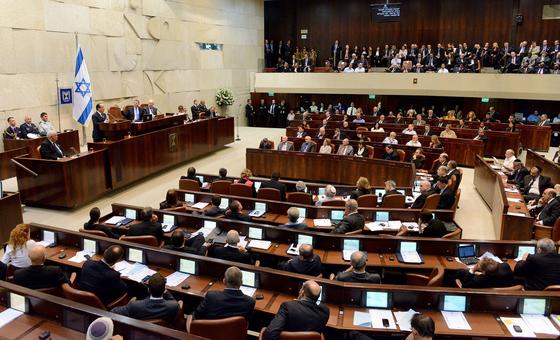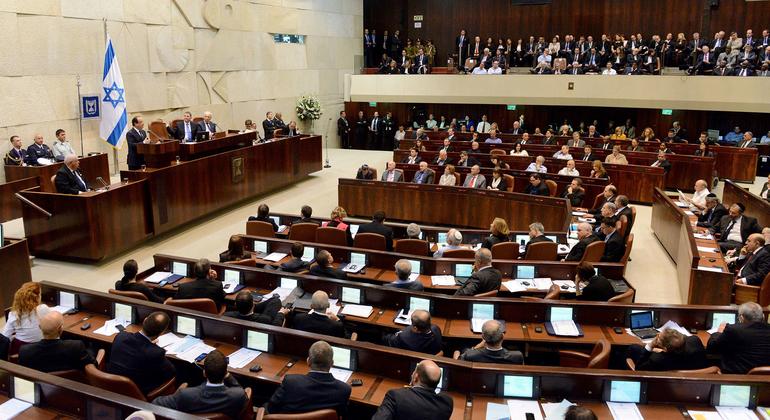
Volker Türk said he had been “following developments closely” in Israel, where parliamentarians supporting the hard-line nationalist Government of Prime Minister Benjamin Netanyahu passed a bill on Monday which in effect strips the Supreme Court of its power to block Government decisions.
Opposition parties boycotted the vote which came after seven months of protests which have exposed a deep rift in Israeli society broadly along the religious-secular divide. Demonstrators said they would continue their action, claiming the country’s whole democratic future is at stake.
Alliance ‘for the defence of democracy’
The UN High Commissioner for Human Rights said that “people from across society have been demonstrating peacefully, building alliances for the defence of democracy and fundamental freedoms.”
He described the protests as an effort to “preserve the democratic space and constitutional balance so painstakingly built in Israel over many decades. It demonstrates the extent of public disquiet at the extent of fundamental legislative changes.”
With just the first stage in the proposed legislative changes now on the statute books, Mr. Türk noted that petitions have already been filed before the Supreme Court itself, which supporters hope will quash the legislative effort.
‘Space to decide’
He said it was “essential that the Court is afforded full space to decide the questions before it, according to due process of law, and free from political pressure or interference from any other quarter.”
He said the “movement” against the parliamentary bid to curb court powers, was based on “people who have put their trust in the enduring value of an independent judiciary to effectively hold the other branches of Government to fundamental legal standards and – ultimately – protect the rights of all people.”



